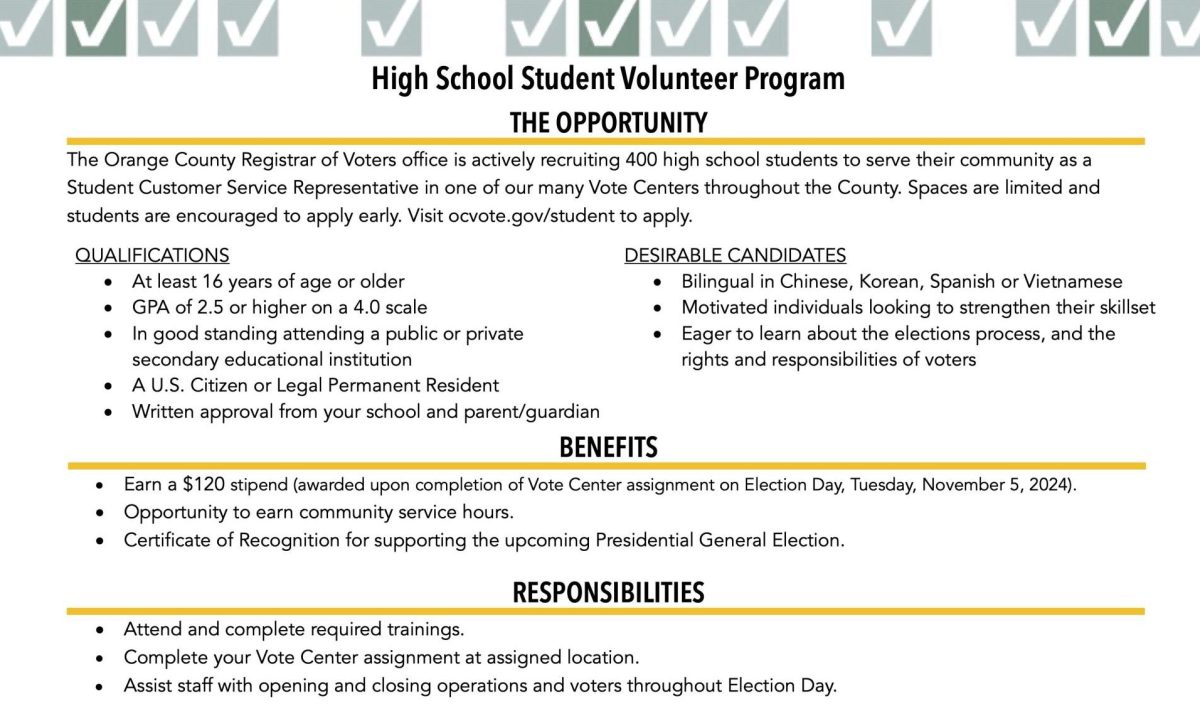This is the second part of a series of stories written by five of Accolade‘s top editors as if they were to be “kings for a day” — all of which originally appeared in the “Photo Finish” special section, which focused on the upcoming Nov. 3 general election in our Oct. 30 print issue. The full issue can be read here. One story will be posted per day until Election Day on Nov. 3.
It’s that time of the year.
Seniors must decide which colleges they want to apply to, scramble to complete their college applications and finally commit to a school of their choosing based on the number of admissions acceptances they received.
However, amid the all-too complicated college application process, one very important yet utterly uncontrollable factor of attaining a postsecondary education stacks itself onto the long list of to-do’s for the average high school senior: financial aid.
As a high school senior myself, the financial aspect of college is definitely an important factor in deciding where to apply and attend next fall. I consider myself as strictly middle class, yet I am caught in the dilemma of pursuing my dream school but having second thoughts because of concerns over paying the full tuition. College tuition in America should not be so expensive, and if I could, I would enact the government to place restrictions on the price colleges can name for their education and provide more aid to middle as well as low class families..
Therefore, if I were king for a day, I would minimize access to federal student loans and require the colleges themselves to create a loan system to keep the issue of paying tuition strictly between the college and student. Increasing reliance on federal aid allows universities to freely raise tuition costs as more people can afford to pay them with government support.
Regarding those who are already burdened with outstanding loan payments, I would enact loan forgiveness for all and start anew with a refined financial aid plan — similar to Bernie Sander’s idea.
However, in the case of government involvement in college debt, I disagree with certain politicians such as Bernie Sanders who advocate that the government will fund the cost of tuition to provide universal education; mainly individual colleges should be worrying about these issues not the federal government.
Federal aid inadvertently gives higher institutions complete freedom to manipulate tuition prices at their will, falling back onto the government to support the students becoming burdened with rising prices. If the government were to announce to colleges beforehand that it will restrict access to the federal loan market, then the burden of recruiting enough students to pay the sticker price would fall to colleges, effectively discouraging institutions from continuing their unbelievable price point for an education.
Of course, students should still have access to a source of government aid as the financial aspect should never be the deciding factor in pursuing an education, but I want to encourage colleges to do more for their students and make critical changes to their system if they wish to keep their students and their potential.
Given this idea, colleges may be able to charge their own interest rates, but this is where the government should step in, not more so in direct financial aid. Policies can restrict universities from charging unreasonably high interest rates, while they may not be too low so that these schools lose funding. To keep the income flow relatively similar to what they have now, schools can take from interest rates as well as still available — but restricted — government aid.
In addition, I would expect more students to be comfortable with paying the full price of tuition if they were lower, so cutting some of these costs may even be beneficial for universities who may have given more aid than needed to some students.
In addition to the existing financial aid and scholarship system in place, higher institutions need to construct more supportive systems in which students rely less on federal aid and more on the college itself. Although a financial aid department already exists within many colleges, a lot more money could be directed toward this area instead of spending it on other aspects of the school to offer more support for middle-class students who often have to burden almost the entire tuition cost.
In comparison to countries like Germany where college is entirely free, taxpayers take on the brunt of the burden to pay for tuition costs. As a result, taxes in those countries are significantly higher than the United States. However, this system cannot apply to our country as much fewer people actually attend college there than here, so while raising taxes may work for those countries, it may not necessarily succeed in large countries such as America where substantial amounts of people attend a postsecondary institution.
Therefore, we must approach this issue from a different standpoint: transition the burden of financial aid to colleges themselves.























